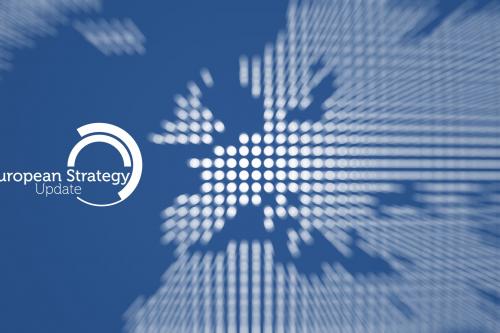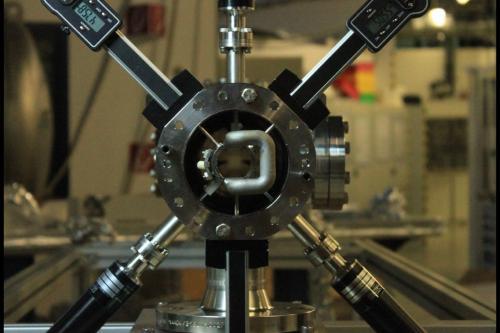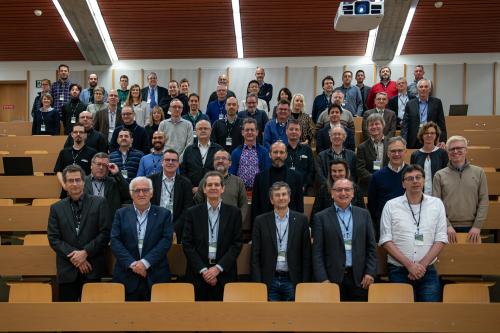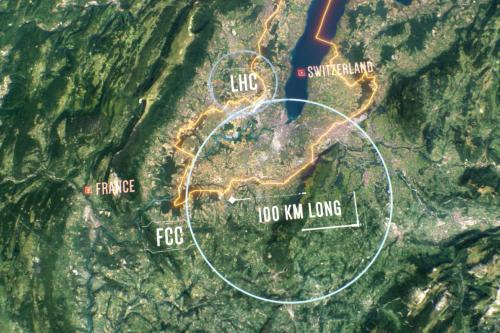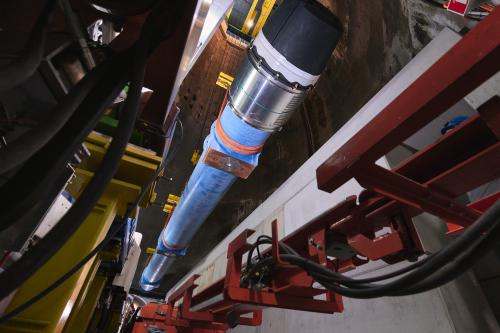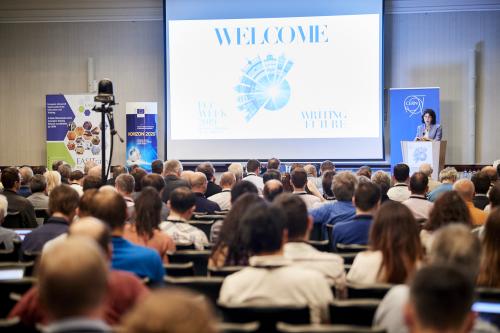FCC : Future Circular Collider study and European Circular Collider (EuroCirCol) project
The Future Circular Collider (FCC) design study explores options for accelerator projects in a global context, with emphasis on proton-proton and electron-positron high-energy frontier machines. These design studies are coupled to a vigorous accelerator R&D programme, including high-field magnets and high-gradient accelerating structures, in collaboration with national institutes, laboratories and universities worldwide.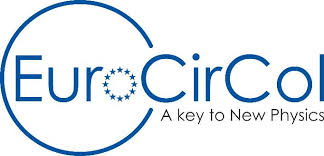
The FCC study is strongly supported by the EuroCirCol H2020 project. The goal of EuroCirCol is to conceive a post-LHC research infrastructure around a 100 km circular energy-frontier hadron collider capable of reaching 100 TeV collisions. EuroCirCol is organised around four technical work packages: the first two develop the collider’s lattice and beam optics including the experimental regions. A third develops prototypes and tests a novel cryogenics beam vacuum system that can respond to the challenges of high synchrotron radiation expected at such a collider. This work also pioneers collaboration between the particle physics and light source communities, with opportunities to improve existing synchrotron-radiation facilities and to reduce cost and performance of fourth- or fifth-generation light sources. The last work package studies a viable design for a 16 tesla accelerator magnet as part of a world-wide study of conductor R&D for the HL-LHC project and the FCC. The EuroCirCol project creates opportunities for doctoral and post-doctoral assignments in the areas of beam optics and accelerator technologies in the participating institutes and provides excellent training opportunities for the next generation of accelerator physicists under the guidance of worldrenowned experts in the field.
The European Circular Energy-Frontier Collider Study (EuroCirCol) project has received funding from the European Union's Horizon 2020 research and innovation programme under grant No 654305. EuroCirCol began in June 2015 and will run for 4 years. The information herein only reflects the views of its authors and the European Commission is not responsible for any use that may be made of the information.

Particle physicists update strategy for the future of the field in Europe
The CERN Council announced that it has updated the strategy that will guide the future of particle physics in Europe.
A novel beam screen technology for FCC-hh
EuroCirCol project delivers an overall integrated design for the cryogenic beam vacuum system for the challenging environment of a future 100 TeV circular proton collider.
Demonstrator racetrack dipole magnet produces record peak field
A magnetic field record has been broken at CERN by the first racetrack demonstrator magnet developed in the framework of the FCC Study.
A novel beam screen technology for FCC-hh
EuroCirCol project delivers an overall integrated design for the cryogenic beam vacuum system for the challenging environment of a future 100 TeV circular proton collider.
A workshop on the energy-sustainable future for research infrastructures
On 28 and 29 November, CERN took part in the 5th Energy for Sustainable Science at Research Infrastructures workshop at the Paul Scherrer Institute.
Unfolding the full potential of a future circular lepton collider
A recently proposed acceleration scheme could further increase the performance of a technology-ready circular lepton collider and boost the exploratory potential of the FCC integrated programme.
FCC Week 19: Towards 16T magnets for future particle colliders
In past decades, the development of high-field superconducting accelerator magnets received a boost from high-energy physics.
FCC Week 2019 accelerates progress towards post-LHC colliders
Academic and research institutes, industrial partners and funding agencies met in Brussels for the Future Circular Collider (FCC) study annual meeting.
